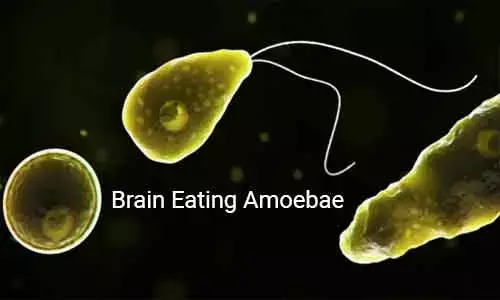- Home
- Medical news & Guidelines
- Anesthesiology
- Cardiology and CTVS
- Critical Care
- Dentistry
- Dermatology
- Diabetes and Endocrinology
- ENT
- Gastroenterology
- Medicine
- Nephrology
- Neurology
- Obstretics-Gynaecology
- Oncology
- Ophthalmology
- Orthopaedics
- Pediatrics-Neonatology
- Psychiatry
- Pulmonology
- Radiology
- Surgery
- Urology
- Laboratory Medicine
- Diet
- Nursing
- Paramedical
- Physiotherapy
- Health news
- Fact Check
- Bone Health Fact Check
- Brain Health Fact Check
- Cancer Related Fact Check
- Child Care Fact Check
- Dental and oral health fact check
- Diabetes and metabolic health fact check
- Diet and Nutrition Fact Check
- Eye and ENT Care Fact Check
- Fitness fact check
- Gut health fact check
- Heart health fact check
- Kidney health fact check
- Medical education fact check
- Men's health fact check
- Respiratory fact check
- Skin and hair care fact check
- Vaccine and Immunization fact check
- Women's health fact check
- AYUSH
- State News
- Andaman and Nicobar Islands
- Andhra Pradesh
- Arunachal Pradesh
- Assam
- Bihar
- Chandigarh
- Chattisgarh
- Dadra and Nagar Haveli
- Daman and Diu
- Delhi
- Goa
- Gujarat
- Haryana
- Himachal Pradesh
- Jammu & Kashmir
- Jharkhand
- Karnataka
- Kerala
- Ladakh
- Lakshadweep
- Madhya Pradesh
- Maharashtra
- Manipur
- Meghalaya
- Mizoram
- Nagaland
- Odisha
- Puducherry
- Punjab
- Rajasthan
- Sikkim
- Tamil Nadu
- Telangana
- Tripura
- Uttar Pradesh
- Uttrakhand
- West Bengal
- Medical Education
- Industry
Quinazolinone, derivatives effective against Brain-eating amoebae, finds study

Kerala Sees Surge in Deadly Brain Infection
Brain-eating amoebae Naegleria fowleri and Balamuthia mandrillaris are protist pathogens that infect the central nervous system, causing primary amoebic meningoencephalitis and granulomatous amoebic encephalitis with mortality rates of over 95%.Currently, there is no single effective drug available to fight these microbes Quinazolinones and their derivatives possess a wide spectrum of biological properties, but their antiamoebic effects against brain-eating amoebae have never been tested before
Now, however, researchers have designed some new compounds that show promise in the laboratory as treatments, according to a report in ACS Chemical Neuroscience.
Naegleria fowleri and Balamuthia mandrillaris are two types of amoebae that can cause primary amoebic meningoencephalitis and granulomatous amoebic encephalitis. They are single-celled microorganisms that live in water and soil, and can enter the body through the nose or open wounds. These pathogens can then move to the central nervous system, where they destroy brain cells. In the very few cases that have been treated successfully, patients were given high doses of many different antimicrobials. However, these drugs generally lack specificity and can have toxic effects at high levels. To make progress toward a single drug, Ruqaiyyah Siddiqui and colleagues turned to quinazolinones. These compounds are effective against a wide spectrum of human foes, including bacteria, viruses, fungi, parasites and cancer, but they had never been tested against brain-eating amoebae.
The researchers synthesized 34 new quinazolinone derivatives and studied their effects on N. fowleri and B. mandrillaris. Some of the new compounds were effective at killing the microorganisms and limiting the harm the pathogens could do to human cells in a Petri dish. In some cases, attaching silver nanoparticles to the derivatives enhanced that activity. The most effective compounds contained chlorine, methyl or methoxy groups, and their toxicity for human cells was low. The researchers say their results show that quinazolinones are good candidates for drug development studies.
For further reference log on to:
Dr Kamal Kant Kohli-MBBS, DTCD- a chest specialist with more than 30 years of practice and a flair for writing clinical articles, Dr Kamal Kant Kohli joined Medical Dialogues as a Chief Editor of Medical News. Besides writing articles, as an editor, he proofreads and verifies all the medical content published on Medical Dialogues including those coming from journals, studies,medical conferences,guidelines etc. Email: drkohli@medicaldialogues.in. Contact no. 011-43720751


